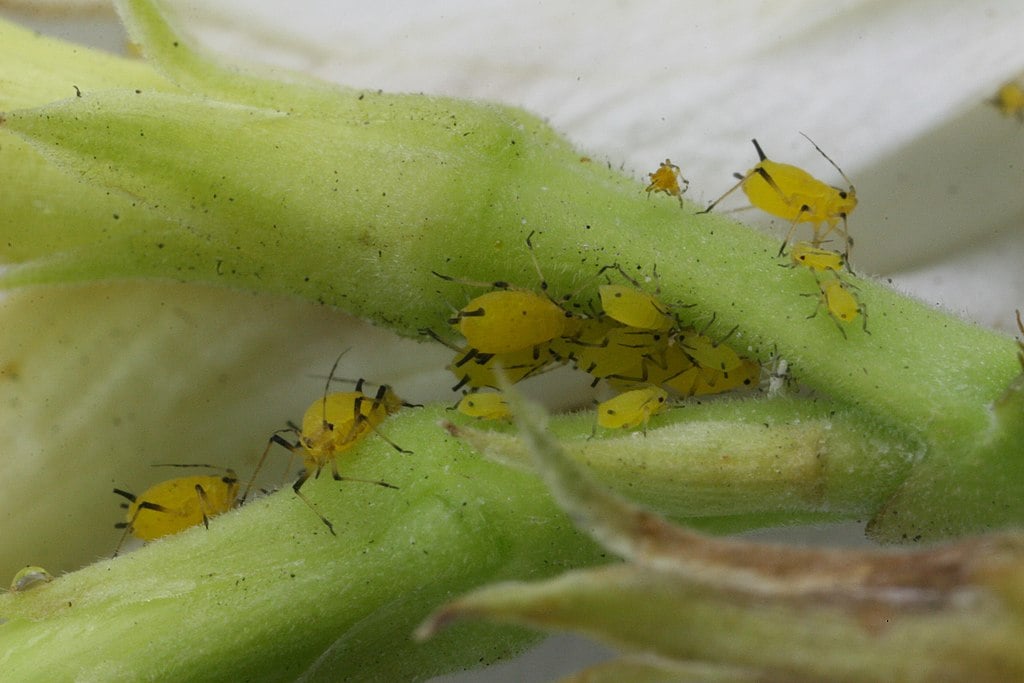
There’s a tiny, life-sucking pest that might be lurking in your landscape!
The aphid is a tiny but mighty tree and shrub pest that literally sucks the “life” (plant juices) from your trees and shrubs with their sucking mouthparts. The destruction in their wake is usually in the form of contorted and misshapen foliage. In time, the plants might even become covered in a black sticky mold called sooty mold, which brings other pests to your plants.
If you have or are worried about an aphid infestation, you might be wondering what you can do about these pests. The last thing that you want is to lose your beloved plants to an aphis problem.
Fortunately, there are solutions. In this article, we’ll talk about aphid control in Memphis so that you know your options.
There are ways to get rid of aphids on shrubs so that you can get back to enjoying your landscape rather than worrying about it.
While we know you likely came to this article to find out how to get rid of aphids on shrubs, we first want to share a bit more detail on what you’re dealing with. As with any pest, you have to know your enemy!
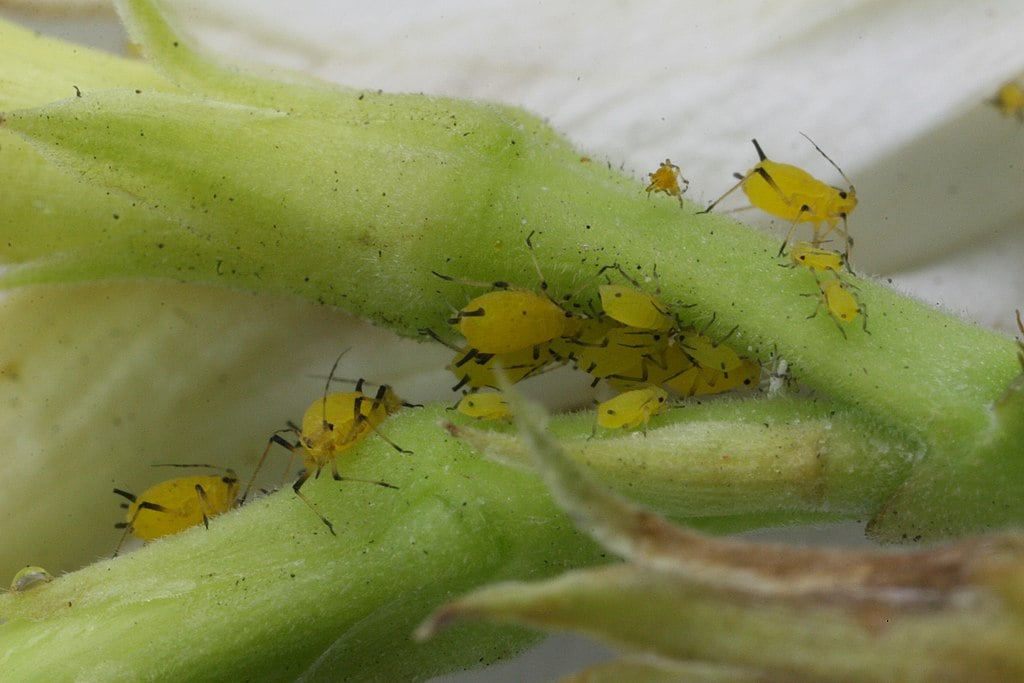
Aphids have also been called “plant lice,” “greenflies,” and even “ant cows.” They are very small (roughly 1/10th of an inch) and are commonly yellow or green and black. These pests are soft-bodied and tend to feed in groups. They prefer new growth.
Aphids have long antennae on their fronts and two short tubes on their backs. These tubes allow them to release a chemical when they are attacked by a predator. Aphids are slow-moving but they reproduce incredibly quickly. What can start as a few aphids can very quickly become a full-blown aphid infestation.
As we mentioned in the introduction of this article, aphids damage plants by using their piercing, sucking mouthparts to drink plant fluid (sap). We’ve heard them referred to as vampires of the plant world and we think that’s a pretty fitting description.
As aphids drink your plants’ sap they will begin to weaken. You might start to notice the leaves turning yellow, wilted, and shriveled. If aphids continue to feed long enough, the plant will eventually die.
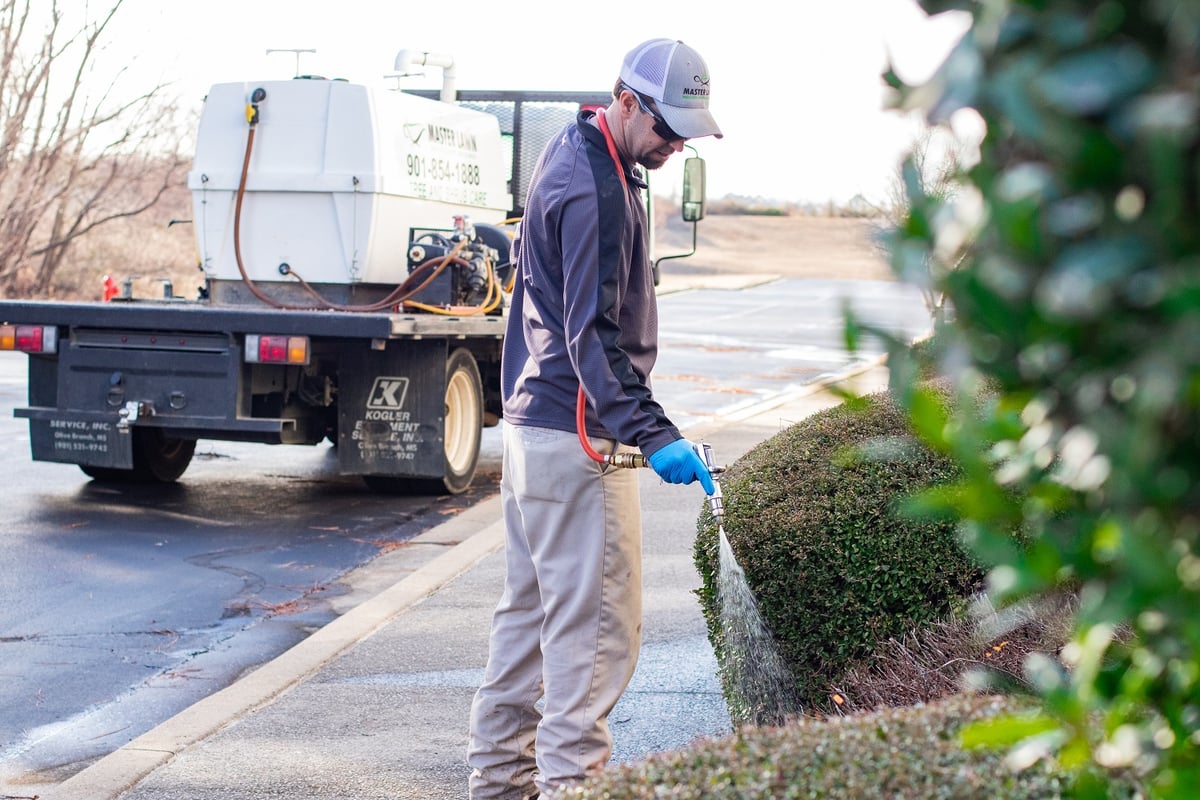
As we mentioned, you might also notice that an aphid infestation comes with some disgusting black dripping goop. As aphids consume your plants’ sap they will excrete a substance called honeydew which attracts unwanted pests like wasps, ants, and flies, which enjoy the sugar.
Unfortunately, as the honeydew sits on the foliage, it also starts to create a fungal growth known as sooty mold. This is when you’ll start to notice black goop which is also blocking your foliage from receiving sunlight and oxygen. All of this just builds upon the problem.
In terms of the signs of an aphid infestation, you might notice some of the problems we’ve described above before you notice the actual pests. Because these pests are tiny, they’re often flying under the radar. You might not realize that you have a problem until you see the leaves wilting or black sooty mold forming (and pests being attracted to the plant).
But upon close examination, you might notice these pests scurrying about, particularly if you have a lot of them. Because aphids tend to stick together, your entire plant could be filled with them.
If you have an aphid problem, you obviously want to know what you can do about it. Instead of worrying that these pests will decimate your plants, you want to know how to get rid of aphids on shrubs or small trees.
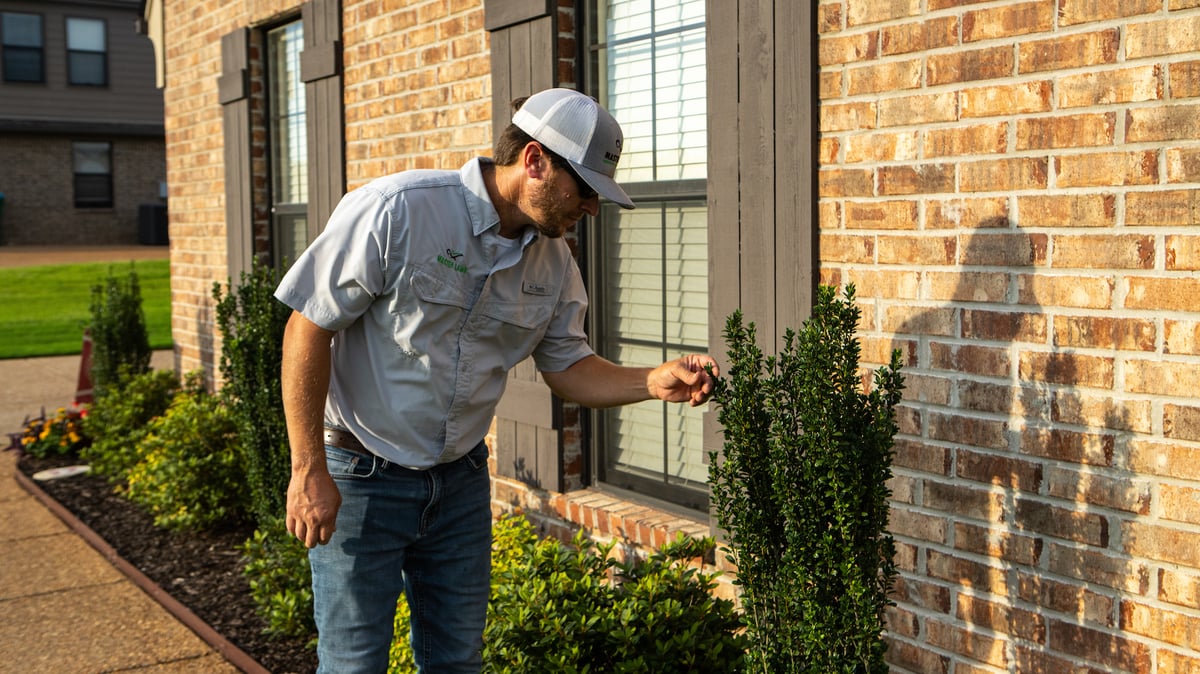
A tree and shrub care professional will be able to use a control product that will address the problem. A professional-grade, kill-on-contact product should take care of any aphids that have already infested your plant material.
In terms of whether your plant can be saved, it will depend on how badly it was damaged. Oftentimes, plants are able to bounce back once the aphids are taken care of.
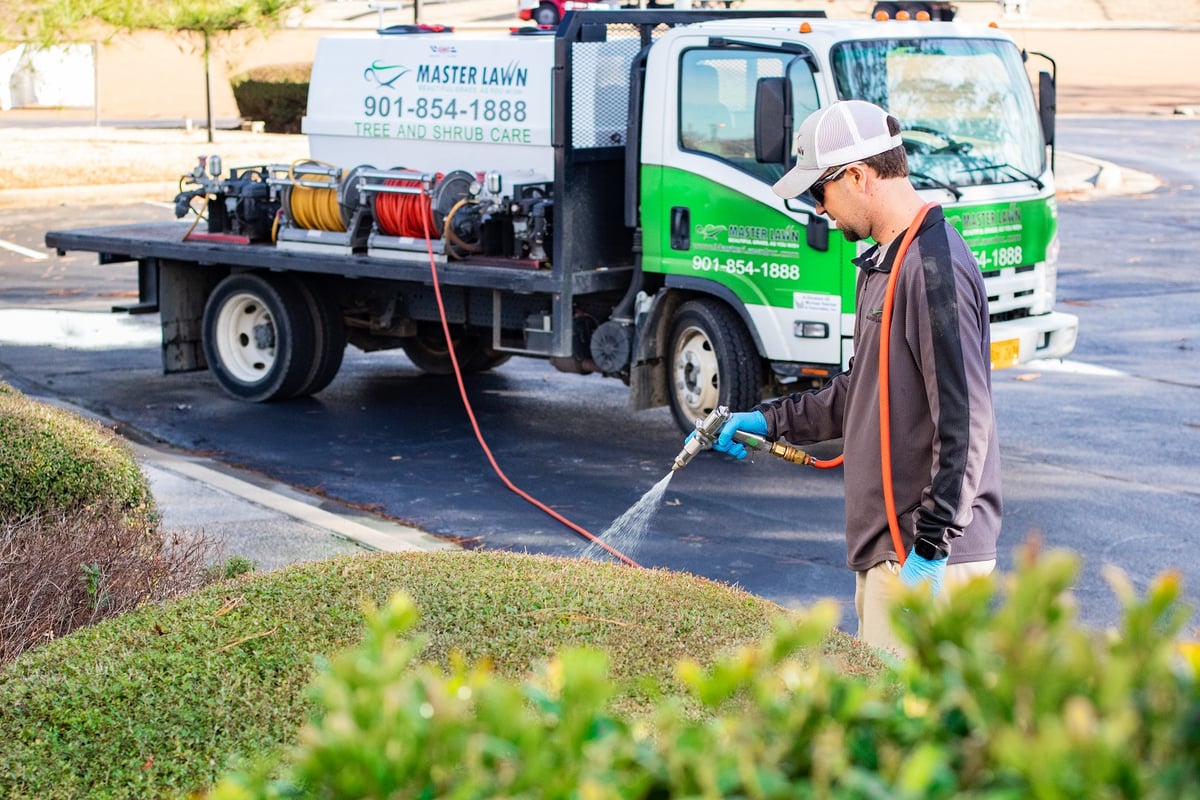
However, if your plant was completely decimated before you realized there was a problem, there is always the chance it won’t recover. If that’s the case, you might consider replacing it rather than always having a sickly and struggling plant in your landscape that never seems to fully recover.
Going forward, you’ll want to control aphids so that they don’t become a problem again.
With a Plant Health Care program, you’ll be able to implement preventative aphid control products that will prevent these pests in the first place.
Of course, it’s important to remember that aphids are just one of many pests that can attack your landscape. In fact, we’ve written an article on some of the worst landscaping pests out there (though even this list is far from complete).
Your landscape can have a multitude of pests lurking looking to destroy your plant material!
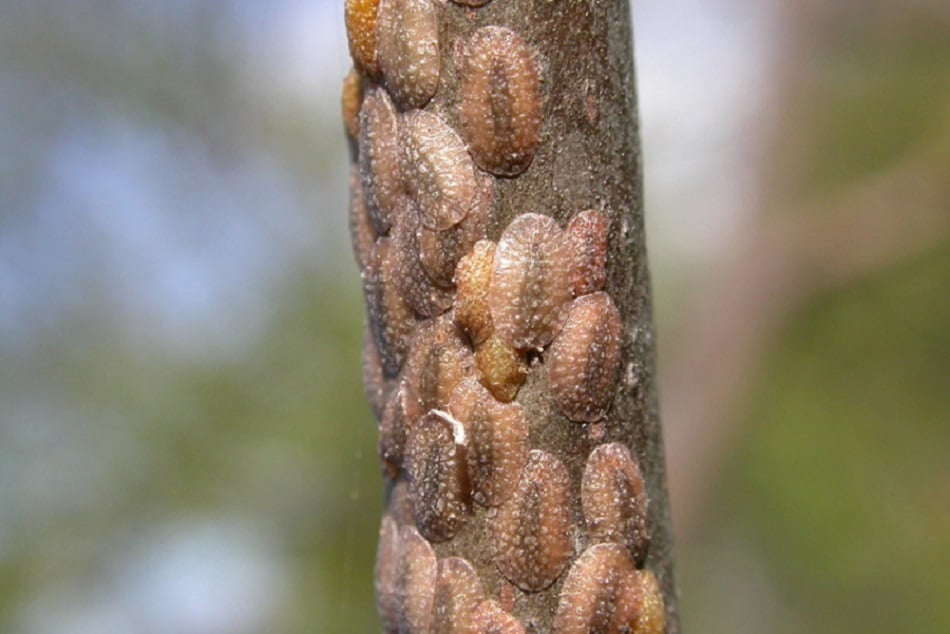
Some of the other landscape pests we mention in the article linked above include the following.
Perhaps you’ve heard of some or all of these. They all share in common the fact that they can be destructive to your landscape and need to be addressed.
This is the benefit of a Plant Health Care program.
In addition to protecting against an aphid infestation, it can protect against these other pests as well. Of course, it’s not as though each of these pests is dealt with the same way. Some of them require different controls.
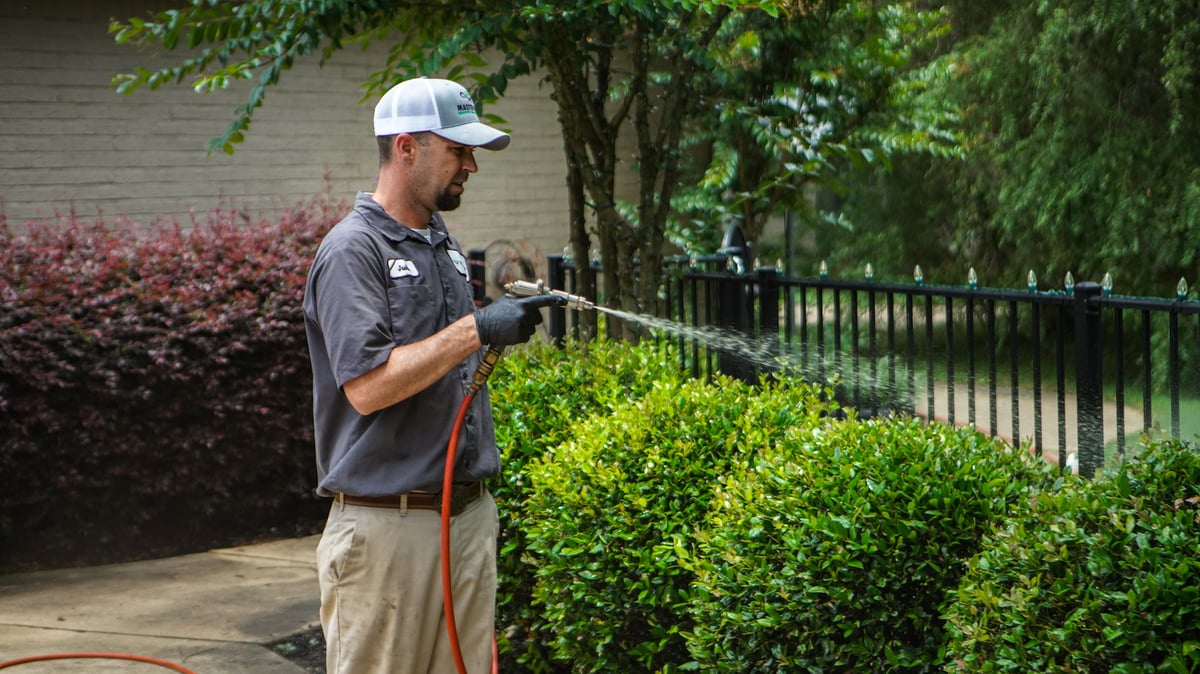
Considering the fact that there are so many shrub and tree pests in Tennessee and Mississippi, and many have their own method of treatment, it is best to leave this in the hands of a professional who will know exactly what you’re dealing with as well as how to best treat it.
A Plant Health Care program will treat existing problems but also prevent future ones, making it protection of the investment in your landscape.
Dealing with pests like aphids is one really important aspect of Plant Health Care. But it’s not the only benefit.
Plant Health Care also makes your trees and shrubs naturally stronger. It provides your trees and shrubs with vital nutrients that they need to thrive and perform their best. The treatments combine fertilization, pest control, and disease control and will help reduce the risk of your plants succumbing to these problems.

Along with all that, your plants are likely to perform better when they’re on a Plant Health Care program. This means that your plants’ leaves may be greener, their blooms more profuse, and you may even get a longer bloom time. This is the result of providing your plants with added nutrients that they need to perform optimally.
It’s important to remember that the plants in your landscape (including your trees and shrubs) are not entirely self-sustaining. Fertilization treatments are really important when it comes to giving plants that “extra help” they often need to truly look and grow their best.
Addressing an aphid infestation is one really important aspect of Plant Health Care. But a complete program is so much more than just that.
At the end of the day, it can all be summed up as “peace of mind.” When you invest in plant health care, you gain peace of mind that your plants are getting everything they need to perform their best and to be protected against disease and pests.
That ultimately means you should be able to let go of the worries about your landscape and know that you are in the hands of a pro who has you covered.
Ready to invest in protecting your plants’ health at your Memphis, TN or Northern Mississippi home? Request a quote, get your customized plan, and become the master of your landscape.
Michael Hatcher is Founder / Chairman of Michael Hatcher & Associates.
These Stories on Plant Health Care
8255 Center Hill Rd
Olive Branch, MS 38654
8164 MS-178
Olive Branch, MS 38654
Phone: (901) 445-9336
Fax: (901) 853-7353
Copyright © Master Lawn | All Rights Reserved.